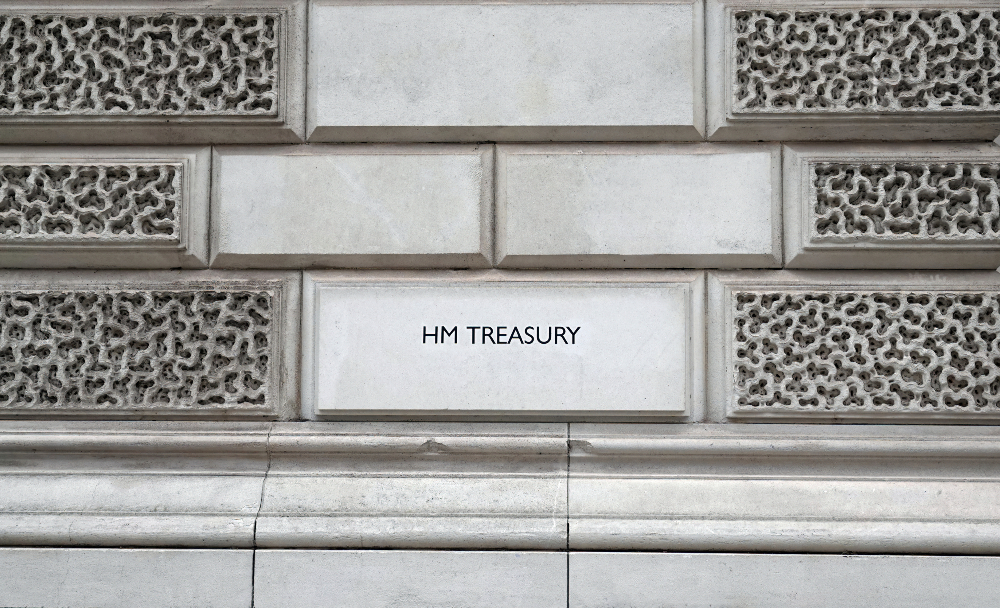Public Affairs Updates
This page contains some of the latest updates from UK Government, central Parliament and the devolved nations, on issues which may affect the hire industry, or be of interest to business in general. Topics can include changes to Full Expensing, updates on major construction projects or efforts made across our supported industries to adopt greener practices, and achieve Net Zero. If you have any questions and wish to speak to us about matters of government policy please contact our Public Affairs Manager Mark Bradshaw on 0121 380 4621.
HAE EHA Public Affairs Roundup 2025
It is always a challenge to include everything important in such a review of the year. Much of what the Hire Association achieves is through working with members and industry partners. That is the case looking at several key public affairs priorities.
Fraud and Theft
Where HAE EHA is doing much to help members to protect assets and to respond when thefts or fraud take place, or are attempted. The Crime Portal is proving to be an effective tool in supporting this work. We will look at how this can be expanded next year. Policing colleagues value the access to hire companies and the rich information being shared. Members gain from sharing insight and intelligence about offences and offenders. Working with partner organisations and policing, the new CITS checklists on fraud prevention and guidance on reporting stolen assets are practical steps taken by the industry working together against a common threat. Our new supplier members, Selectamark and HTG will help the Association to provide updated insightful guidance to members.

Capital Allowances
The campaign to get access to capital allowances for assets purchased for hire purposes has, at last, proved successful. Our target was the Full Expensing regime which excluded most hire assets, as did the earlier financial measures to encourage investment. HAE EHA and other associations pointed to the unfairness of this. Therefore, the new 40% First year Allowance (FYA) is somewhat of a breakthrough. It permits hire firms to apply the FYA for assets purchased for hire, without limitations on use by entities which are unincorporated. It will also allow ‘insignificant’ overseas use and does not prevent or restrict cross/rehire assets being eligible for the allowance. The draft enabling legislation in the Finance Bill has been published. HAE EHA also asked for guidance to support adoption of the allowance and to encourage compliance. A draft HMRC guidance note was published and is now being considered by our Tax Working Group.
Carbon Reporting
Our colleagues at the European Rental Association have published bespoke hire and rental guidelines for auditing and reporting on carbon impact. These guidelines have global appeal and HAE EHA is keen to raise awareness and encourage their adoption across the sector. The guidelines are applicable to all hire businesses, but also suppliers, OEMs and contractors. This will be a key priority for 2026.
HAE EHA is focused on these and other priority topics, working with members and engaging with politicians from all national political parties, officials, the media and a wide range of industry partners, representative organisations and specialist bodies. As a non-political trade association this is important work and we value the support of members and partners in achieving success, getting heard and in pushing for change.
If you have any questions on the above, or other public affairs matter please contact Mark Bradshaw, Public Affairs Director on 0121 380 4621.

Autumn Budget Report 2025 – A Heavy Burden Falling on Business but a Bright Spot for Hire
Despite the heavy list of new and increased taxes announced in the Autumn Budget on 26th November, there was a bright spot for the hire sector. Members will know that HAE EHA, along with other trade bodies, have been pressing successive governments to recognise the importance of assets purchased for hire. Most of these assets have been excluded from capital allowances, the former Super Deduction Allowance and other schemes. This is a legacy from wider anti-avoidance (not in our sector but in other parts of the economy).
Background
The previous Government accepted the case to include assets purchased for hire within the Full Expensing (FE) regime but only when fiscal conditions permitted this. This came after several meetings with Treasury and HMRC officials on the detailed options.
The Labour Government continued with this position, mentioning the potential change to FE in the Corporate Tax Roadmap.
HAE EHA has continued to press the case, providing additional information about how the economy and delivery of key national missions could be enhanced by including hire assets (and those from other sectors similarly excluded).
Inclusion in Full Expensing would have some restrictions applied. No overseas assets, equipment used by non-corporation taxpayers would not be included and there were barriers to assets used predominantly for cross hire / re-hire activity. The additional administration and compliance regime required for this would be noticeable and we know this was of concern to Ministers.
What was announced in the Budget
The chancellor made brief mention of a new 40% allowance. This didn’t include any details so, we had a meeting with Treasury and HMRC officials who provided more information.
The new First Year Allowance (FYA) will be set at 40% for main rate plant and machinery assets including those bought for hire and leasing (leasing is the term used in the legislation). It will apply from January 2026 rather than the start of the next financial year. There appear to be very few restrictions apart from excluding assets purchased for overseas use (‘insignificant’ overseas use is to be allowable but we await the definition). Assets hired to non-taxpaying entities and unincorporated businesses (small builders, tradespeople etc) are all within scope and not excluded from FYA. Second-hand assets are excluded from FYA.
Next steps
The briefing document on the FYA can be viewed here. We are expecting the draft Finance Bill to be available week commencing 1st December and for the FYA provisions to be set out in this. We have been asked to meet again with officials and to feedback on the draft clause. There will also be industry guidance which is important to encourage awareness and compliance. Again, HAE EHA will help to shape this with support from our Tax Panel.
If you would like to join this (and have financial/legal expertise), then please let us know.
Thank you
Speaking for HAE EHA, we appreciate member’s active support in this campaign which has lasted for over four years. We wanted recognition of how construction and other related sectors had changed. We also believe that assets for events are also within scope, and we want to explore this with officials.
If the experience with FYA proves to be positive and compliance is not problematic, then further enhancements may be on the table, whether utilising FYA or Full Expensing. This means our campaign will continue.
Further details please contact Mark Bradshaw, Director of Public Affairs on mark.bradshaw@hae.org.uk or 0121 380 4621, and we will share updates as the information becomes available.
Caveat
As with all taxation matters, please take professional advice. Not all the details are known yet and the legislation and guidance will be crucial in our understanding of what the FYA will do, and what is outside its scope. We know some members will want to make use of the FYA if it is applicable to their circumstances and will also want to comply with the rules.

HAE EHA Public Affairs Roundup 2024
UK Budgets and Full Expensing
The beginning of 2024 was dominated by the forthcoming budget and concerted hire sector efforts to secure an extension to eligibility for Full Expensing. The inability of the hire sector to use this allowance for asset purchases remains a major disadvantage and barrier to the adoption of greener equipment.
The final Budget of the Conservative Government in March 2024 included a commitment to extend full expensing to assets purchased for hire, but only when fiscal conditions allowed. This commitment by Jeremy Hunt MP represented a major advance, in that the technical case for change had been accepted, but it was the perceived affordability of the measure that remained an obstacle.
Full Expensing would give a boost to the level of asset investment, particularly, spending on more sustainable and greener equipment which tends to be more costly and requires additional training, power and integration resources. Full Expensing would help to bridge this financial gap. This is important to meet growing procurement requirements for greener fleets, but also the expectation of fresh proposals to expand controls on Non-Road Mobile Machinery (NRMM) to outside London.
An unexpected General Election early in July brought about a change to a Labour majority Government, the first since 2010. The Association made early contact with the new Chancellor, Rachel Reeves MP, asking her to retain the commitment made by her predecessor regarding Full Expensing. This included a letter jointly written by HAE, CPA and CEA. We also maintained contact with the Department for Business and Trade initiated before the election.
Fast forward to 30th October and the first Labour Budget. The commitment to extend full expensing remained in place but so did the caveat ‘when fiscal conditions allow’. The Corporate Tax Roadmap repeats this commitment and to consult on the technical aspects. Subsequent conversations with officials made clear that the case for change was well made and accepted, but current adverse economic headwinds made it too costly a decision to implement this year. The Association will maintain pressure, working with members and other trade bodies such as CPA, CEA and IPAF, to implement the extension. This activity was supported by an expert Tax Panel.
We also share the concerns of other sectors about the increased levels of business taxation in the Budget and the likely impact on jobs and future investment. The hire sector is a key enabler for homebuilding, infrastructure, transport, energy networks and a range of other national priorities, including resilience.
Tackling Equipment Theft and Fraud
2024 also marked the start of the HAE EHA’s donor funding commitment towards the National Construction and Agricultural Theft Team (NCATT) policing unit. This three year pledge will contribute towards NCATT’s operational costs and is already yielding benefits. NCATT is successfully recovering stolen assets in the UK and overseas to the sum of several millions of pounds. The unit is liaising with other police forces and is disrupting organised criminal gangs. The Association is working with other industry bodies to share good practice and intelligence about the criminality affecting the hire sector. Our members face unprecedented levels of fraud and we are again working collaboratively to share advice and help identify offenders. Using the Proceeds of Crime Act is proving an interesting new dimension to combating theft and fraud offences.
The Association also launched a new online portal for sharing crime information and this went live in October. The new Crime Portal replaces a previous email group and allows moderated contributions and document/media sharing. The police have access as do a growing number of members and partner organisations. HAE EHA would welcome views about the Crime Portal and suggestions for improved functionality.
The Equipment Theft (Prevention) Act 2023 is intended to apply to construction and agricultural equipment through regulations. These have yet to be published in draft form and the hire sector, and suppliers, are anxious about how this legislation would apply in a complex supply chain and in the hire environment. A joint letter from HAE, CEA and CPA has been sent to the Policing Minister offering constructive dialogue and our support in shaping a workable and effective set of measures to tackle crime.
The Association is represented on the Combined Industries Theft Solutions (CITS) Board and attends regular meetings of the Hire Forum consisting of security and risk professionals.
CITB Levy Consensus
As we approach the year end, the Hire Association, as a CITB Prescribed Organisation, has developed and presented its Membership Engagement Plan to CITB in readiness for the next Levy Consensus consultation in the first quarter of 2025. This will involve information provision and contact with ‘in-scope’ members, and a survey to gauge views on the final Levy proposals. This is an important exercise given the skills gap in the hire sector, the growing demand for skills development and boosting the attractiveness of a career in hire.
ERA, Sustainability and Green Matters
During the year, the Association has played an active part in the work of the European Rental Association (ERA) contributing to work on carbon reporting, wider sustainability and net zero topics and the annual report on market conditions. Next year, we will engage with projects on energy transition and equipment theft, as well as taking part in the annual ERA Convention in Dublin (June 2025) and European Rental Week.
Public Affairs Work in 2025
The Association’s engagement with Government and other bodies is supported by the parliamentary monitoring and information provided by Randalls Ltd and through our CBI membership.We are also members of both the Event Industry Forum (EIF) and Build UK.
Other public affairs activity included supporting a revitalised Chairman’s Group of sector leaders, productive supply chain discussions and engagement about future trends in the sector. More of this is scheduled for 2025 as is the creation of a new Public Affairs Panel.

2024 CBI Conference Focuses on Economic Growth and Climate Change
HAE EHA attended the Confederation of British Industry (CBI) Annual Conference on Monday 25th November at the QE2 Centre in Westminster, represented by Public Affairs Manager Mark Bradshaw.
The CBI provides a ‘voice’ in government for businesses and industry bodies and the Hire Association is an active member, working with them across a range of topic areas.
During the day, business leaders spoke about technological change and how this needed to be managed with existing employees and structures.
An ageing workforce, plus high levels of economic inactivity and the ever present and widening skills gap were all discussed. Artificial Intelligence (AI) is clearly having a massive impact on a range of sectors, re-engineering processes and customer service.
There was a panel discussion on climate change and the global COP29 discussions. Upgrading national energy infrastructure, climate resilience and carbon reporting were key themes.
The new Conservative Party leader Kemi Badenoch spoke about the Tories’ intentions to renew their policy offering in time for the next election, without promising to reverse any of the changes announced in the Budget. She wanted a less interventionalist government.
Chancellor of the Exchequer Rachel Reeves spoke about her Budget and recognised how unpopular it was with many in the business community. She spoke about her intention to stabilise the economy and push for economic growth, working with businesses. Public services would be expected to operate within their agreed budgets and she did not want to have another Budget like the one in October. The Corporate Tax Routemap was a commitment, as was no further tax increases on businesses.
Hire Sector Reacts to Autumn Budget, Full Expensing Needs to be Extended
HAE EHA had hoped that the Chancellor would announce the extension of Full Expensing for capital investment in the Autumn Budget 2024. This would allow equipment hire and rental businesses to make use of this incentive to invest in new assets, particularly greener technology.
While the Chancellor did not announce implementation of this measure today, we note from the Corporate Tax Roadmap (also published today) that extending Full Expensing remains under consideration and that further discussions are likely.
HAE EHA has been part of a Treasury working group to navigate the issues and opportunities from extending Full Expensing. We will continue to play our part in making the case as the hire sector is integral to construction, events, facilities management and the energy network.

Paul Gaze, HAE EHA CEO said this afternoon; “We are relieved that extending Full Expensing for hired assets remains under active consideration, albeit disappointed that members cannot make use of this incentive from today and start planning their investments in new equipment.
“As a capital intensive sector, which epitomises the circular economy, extending Full Expensing would support the transition to Net Zero and enable fresh investment in newer, more efficient equipment. Delivery of the capital projects announced today will depend on the hire sector to provide the assets required to build, repair and maintain.”
Other measures announced by the Chancellor will have a mix of positive and negative impacts for the hire sector.
To read the official press release from HM Treasury that summarises the budget, click here.
This article is a is a snapshot of the Autumn Budget 2024 announcement. Please read the supporting documents, some listed below, and take professional advice in relation to any corporate or personal matters.
Further Reading

New Guidance Published on Responsible Sourcing of HVO
The Supply Chain Sustainability School has just published guidance on responsible sourcing of hydrotreated vegetable oil (HVO). This is highly topical for the hire sector and includes advice on carbon reporting of HVO. The guidance is free but you need to log in or register for a (free) account with the School.
A copy of the guidance can be downloaded from the School website after login or first time registration. Click here to gain access.
A webinar was held to launch publication of the guidance and this can be viewed here.
Get in Touch
If you’d like further information on matters of government policy, please
contact Mark Bradshaw on 44(0)121 380 4621 or by e-mail mark.bradshaw@hae.org.uk.